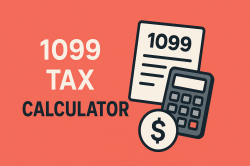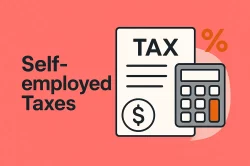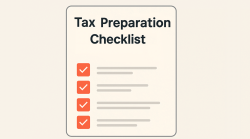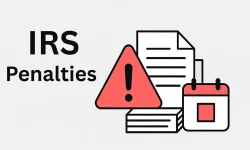Table of Contents
The term 1099 Form refers to a family of IRS tax documents used to report various types of income outside of regular wages, salaries, and tips. Payers issue these forms to recipients and also file copies with the IRS to ensure all taxable payments—such as freelance fees, interest, dividends, and rent—are properly reported.
Types of 1099 Forms
1099-NEC (Nonemployee Compensation): Reports payments of $600 or more to independent contractors and freelancers.
1099-MISC (Miscellaneous Income): Covers rents, prizes, royalties, and other income not reported elsewhere.
1099-INT (Interest Income): Issued by banks and financial institutions for interest paid of $10 or more.
1099-DIV (Dividends and Distributions): Reports dividends and other distributions of $10 or more.
1099-K (Payment Card & Third-Party Network): For transactions processed through payment cards or third-party networks (e.g. PayPal) exceeding set thresholds.
Who Must File
Any business or individual that pays $600 or more in a calendar year to a non-employee (contractor, vendor, landlord, etc.) generally must issue the appropriate 1099 form to each recipient and file copies with the IRS. Calculate your taxes and deductions with our 1099 tax calculator.
When to File
Recipient Copy: Must be furnished to recipients by January 31 of the following year.
IRS Copy: Paper filings due by February 28; electronic filings due by March 31.
Late filing can incur penalties, so it’s important to prepare and distribute 1099s on time.
How MileageWise Helps
While MileageWise doesn’t produce 1099 forms directly, our IRS-proof mileage and expense logs provide the detailed support you need when preparing your 1099s:
Accurate Expense Tracking: Keep receipts and mileage tied to each payment you report.
Easy Export: Download CSV/PDF logs to attach to your 1099-MISC or 1099-NEC filings.
Audit-Ready Records: Maintain clear, chronological logs to back up every income and deduction entry. This is crucial to avoid any issues and IRS penalties.
FAQ
No, 1099 forms are for non-employees (contractors, vendors). Wages paid to employees are reported on Form W-2.
You can correct mistakes by filing a Corrected 1099 with the IRS and providing the recipient with a corrected copy.
Yes, failure to file or late filing 1099s can result in IRS penalties ranging from $50 to $280 per form, depending on how late the correction is made.












